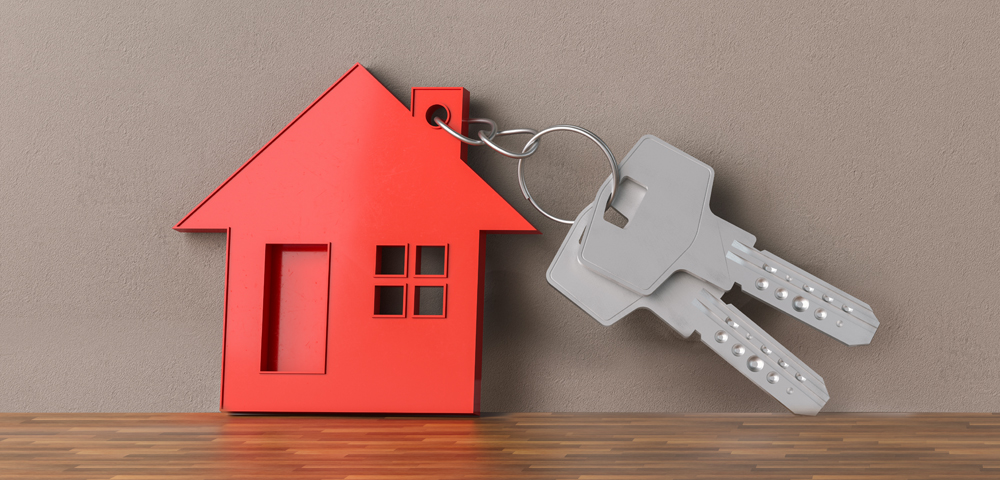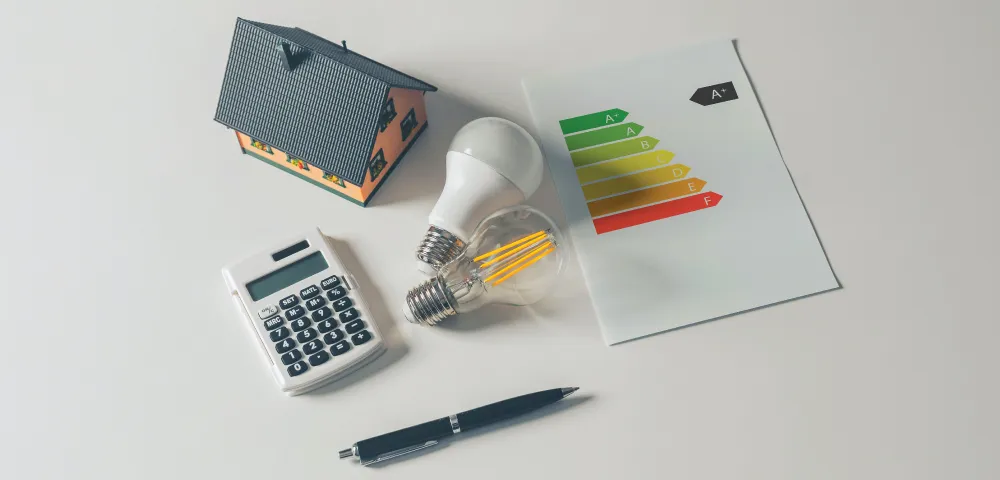Ideal Age To Buy A Home- Should You Start Young?
By lodha
December 07, 2023

Table of Contents
1. Buying a home at different stages of life.
2. Benefits of Buying At An Early Age In Life
3. Why Homeownership Is Suitable For The Long Run?
4. Learn More About Home Buying and Financing Here
Owning a home continues to be a priority for most Indians. However, this step is generally taken, when people reach their 30s or when they plan to get married or start a family. People seldom realise that there are numerous benefits to owning your own home at a young age. With a little planning, one can even invest in a property at the start of one's career. Moreover, one can always sell the property at a later stage, to upgrade to a bigger house. Here's a look at the benefits of purchasing a property at a young age and the factors that one needs to consider, before taking this step.
Before diving right into the benefits of buying a home at an early age, let us first understand buying a home at different stages of life.
Buying at 25-30
For individuals in the 25-30 age range, one of the main benefits of buying a home is the longer mortgage repayment period, which can give them more time to pay off their mortgage and build equity in their home. Additionally, buying at a young age can provide more time to benefit from appreciation, which can result in significant growth in value. However, young buyers may face challenges such as limited savings, limited income, and uncertain life circumstances that can make it difficult to qualify for a mortgage and commit to homeownership.
Buying at 30-35
For individuals in the 30-35 age range, there may be more savings available, and they may have established a stable income and career path, increasing their chances of getting approved for a mortgage. Additionally, many buyers in this age range may be considering starting or expanding their families, making a stable home environment essential. However, competition for desirable homes in popular neighbourhoods can make it challenging to find the right property, and the cost of homeownership may increase as the home ages.
Buying at 40+
Finally, for buyers in the 40+ age range, one of the primary benefits of buying a home is established financial stability. With more savings and equity built up, buyers may be able to use their home equity to finance other investments or retirement. However, they may also face challenges such as limited mortgage options, more maintenance as the home ages, and higher property taxes that can be challenging for buyers on a fixed income. Moreover, as one approaches the age of 40, retirement planning becomes a priority, and acquiring a home loan may negatively impact the individual during retirement. Ultimately, the decision to buy a home at any age requires careful consideration of personal circumstances, finances and future goals to determine whether homeownership is the right investment choice.
Benefits of Buying At An Early Age In Life
A Home is a Financial Investment
When you are purchasing a home, you are also securing your financial future. This is because real estate prices only increase over time, and in a few years, you will be able to sell your property at a much higher price than what you bought it at. A study on new asset prices has suggested that real estate fares better in long-term investments when compared to equities.
You will Get to Build Your Credit
Purchasing a home at a young age can help you build your credit. If you procure a home loan with a lender or a bank in your 20s, it will only make your credit history look good. Also, if you can pay your home loan back in time, it will improve your credit score, even more, allowing you to get much higher loans, and consequently providing you with the opportunity to buy a better home for yourself in the future.
You will Develop Healthy Spending Habits
Buying a home at a young age is a significant financial commitment, one that can shape your spending habits for the future. Not only will you be paying off the home loan, but you will also have to purchase amenities to maintain your home.
Banks are Keener to Offer Loans to Young People
Banks are more eager to loan out money to young people, simply because they are assured that youngsters will be able to pay off their debt on time. Young people have longer employment terms, and their income will rise with age, so getting a loan will be easy when you start early.
The House Can Be a Source Of Income
You don't necessarily have to live in the home you buy. Instead, you can rent it and use that income to pay your EMIs. This way, the EMI payments will not affect your daily expenses.
Renting V/S Buying - The Better Option?
It is true that renting a property, especially a home, has short-term benefits. Many young individuals prefer to rent than buy because they are unsure of where they want to settle down eventually, and don't want the commitment of a home. However, there are some areas where homeownership beats property renting.
Why Homeownership Is Suitable For The Long Run?
The first and foremost benefit of homeownership over renting is the security it provides. When living on someone else's property, you essentially live on their terms. Your personal freedom may or may not be curbed by your landowner. But in your own home, you can enjoy uninterrupted freedom and security.
Rent Keeps on Increasing Each Year
Picture this, you find an excellent property and decide to pay a fairly high amount of rent for it. In six months, your landowner decides to hike your rent even further. This, coupled with your other expenses, can create an exorbitant bill for your lifestyle. Homeownership saves you from this hassle.
Once the loan is secured, you will only have to pay off a small amount at regular intervals. You will be aware of the amount of EMI you have to pay and can plan your lifestyle accordingly - no sudden increases in expenditure, as far as your home property is concerned.
Factors You Need to Consider Before Getting a Home Loan at a Young Age
Taking out a home loan at a young age is not uncommon, but there are a few factors that you need to keep in mind:
a) You will need to plan your finances effectively while taking into account your daily expenses and maintenance costs.
b) If you want to buy a house as an investment in real estate, then pay attention to the area in which it is located. Houses in upcoming areas are less expensive and provide a better return on investment.
c) Look for a house that is ready to move in. That way, you will acquire it faster and give it out on rent to help your EMI payments.
Lodha, Building a Better Life, the right way
At Lodha, guided by our vision of 'Building a Better Life' we follow transparent and ethical business practices. We have stringent anti-corruption, anti-bribery and anti-money laundering policies that are binding to all our associates, contractors, suppliers, subsidiaries, affiliates and sub-contractors. We ensure adherence to a high level of social, ethical and responsible practices in any business dealings by having multiple checkpoints and processes in place. Any suspected instance of policy violation is deftly investigated and appropriate disciplinary action, including suspension & termination of service or initiation of civil and/or criminal proceedings, is undertaken. Coupled with our commitment to nurturing an environment that enables growth and fulfils ambition for all our stakeholders and consumer trust in the brand; Lodha is India's leading realty player.
Frequently Asked Questions
1. When buying a home. how should one decide on financial capacity?
When deciding on the financial capacity for buying a property, one should consider their income, expenses, debt-to-income ratio, credit score and down payment amount to ensure they can afford the monthly mortgage payments and associated costs without compromising their financial stability. It's recommended to get pre-approved for a mortgage and seek advice from a financial advisor before committing to a purchase.
2. Is buying a property after 40 too late?
No, buying a property after 40 is not too late. However, it is essential to consider factors such as retirement planning, financial stability, and long-term goals before committing to a purchase.
3. When to buy a home?
There is no specific age, as it depends on personal circumstances and financial stability. However, individuals in their late 20s to mid-30s may benefit from longer mortgage repayment periods and appreciation potential.
4. Is it possible to buy a house at the age of 30?
Yes, it is possible to buy a house at the age of 30. Usually, at this age, many individuals have established careers and savings, which can make it easier to qualify for a mortgage and afford the associated costs of homeownership.
5. Is 40 the right age to buy a house?
There is no set "right" age to buy a house, as it depends on personal circumstances and financial stability. However, individuals in their 40s may need to consider retirement planning, financial stability, and long-term goals before committing to a purchase. It is advisable to seek advice from a financial advisor before making a decision.
6. How much money should I save before buying a house in India?
The amount of money you should save before buying a house in India depends on the cost of the property and your financial situation.
You may also like



 Enquire
Enquire
 Call
Call
 chat
chat
 Search
Search





